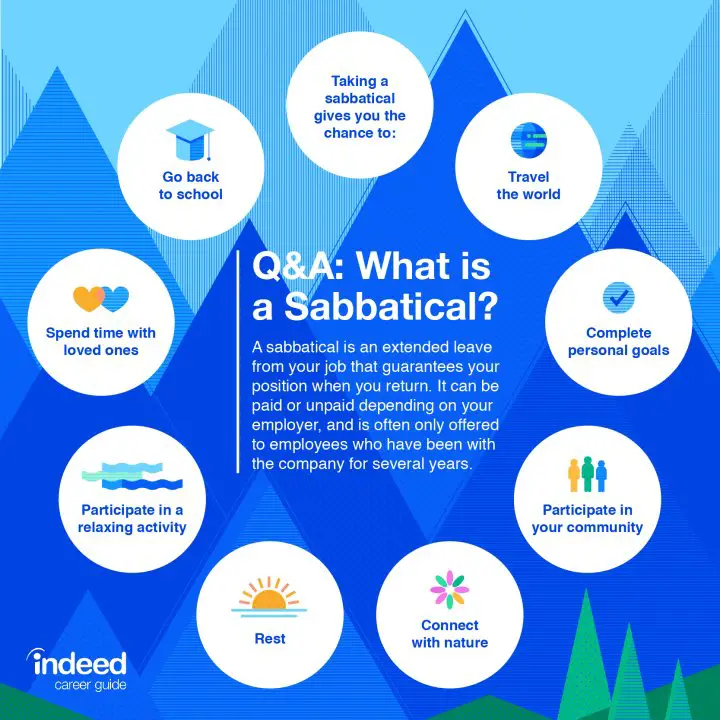Are you considering taking an unpaid sabbatical but unsure how to plan for it? Don’t worry, we’ve got you covered! Planning for an unpaid sabbatical may seem like a daunting task, but with the right approach, it can be both manageable and rewarding. In this article, we’ll guide you through the steps to successfully plan for your time off, ensuring you can make the most of your sabbatical experience while minimizing any financial concerns. So if you’re ready to embark on this exciting journey, let’s dive in and explore how to plan for an unpaid sabbatical!
How to Plan for an Unpaid Sabbatical
Taking an unpaid sabbatical can be a transformative experience, offering you the opportunity to recharge, pursue personal interests, or explore new career paths. However, planning for an unpaid sabbatical requires careful consideration and preparation to ensure a smooth transition and financial stability. In this article, we will guide you through the process of planning for an unpaid sabbatical, covering important aspects such as financial preparation, determining the duration, communication with employers, and creating a roadmap for your sabbatical journey.
1. Assess Your Financial Situation
Before embarking on an unpaid sabbatical, it is imperative to assess your financial situation and ensure you have the necessary funds to sustain yourself during the period of your sabbatical. Consider the following steps:
i. Create a Budget
Outline your monthly expenses and identify areas where you can cut back to save extra money before your sabbatical. Take a close look at your current spending habits and consider reducing discretionary expenses such as eating out or entertainment.
ii. Build an Emergency Fund
Having an emergency fund is crucial to handle any unexpected expenses that may arise during your sabbatical. Aim to save at least three to six months’ worth of living expenses in a separate account specifically designated for emergencies.
iii. Calculate Your Sabbatical Budget
Estimate how much money you will need to cover your essential expenses, including housing, food, utilities, transportation, and healthcare, during the unpaid sabbatical period. Factor in any additional costs related to specific activities or travel plans you have in mind.
iv. Explore Alternative Income Sources
Consider whether there are any possibilities to generate income during your sabbatical. This could include freelancing, consulting, or taking up part-time remote work to supplement your savings and reduce the financial strain.
2. Determine the Duration of Your Sabbatical
Deciding on the duration of your unpaid sabbatical is an important step in the planning process. Consider the following factors to help you make an informed decision:
i. Goal and Purpose
Reflect on the purpose of your sabbatical and the goals you want to achieve. The duration should align with your objectives, whether it’s obtaining a specific qualification, traveling, or pursuing personal projects.
ii. Financial Considerations
Evaluate your financial capabilities and estimate how long you can comfortably sustain yourself without earning a regular income. Remember to account for the time needed to find a new job or transition back into the workforce after your sabbatical ends.
iii. Job Stability
Assess the stability of your current job and the potential impact an extended absence may have on your position or future career prospects. If maintaining job security is essential, you may need to opt for a shorter sabbatical or negotiate a leave arrangement with your employer.
iv. Personal Preferences
Consider personal commitments, such as family responsibilities or other obligations, that may influence the duration of your sabbatical. Evaluate how an extended absence may impact these aspects of your life and adjust your plans accordingly.
3. Communicate with Your Employer
Open and transparent communication with your employer is crucial when planning for an unpaid sabbatical. Follow these steps to ensure a positive conversation:
i. Research Company Policies
Review your company’s policies regarding sabbaticals, leaves of absence, or career breaks. Become familiar with any existing protocols or requirements that you need to abide by.
ii. Prepare a Proposal
Create a comprehensive proposal outlining the reasons for your sabbatical, the duration, and how it aligns with your personal and professional growth. Emphasize the potential benefits for both you and the company, such as increased productivity, enhanced skills, or fresh perspectives upon your return.
iii. Schedule a Meeting
Request a meeting with your supervisor or HR representative to discuss your sabbatical plans. Choose a time when the company is less likely to be overwhelmed with projects or deadlines to increase the chances of a positive response.
iv. Be Professional and Flexible
Approach the conversation in a professional manner, demonstrating your commitment to your job and willingness to work together to find suitable solutions. Be open to compromises or alternative arrangements that may be proposed by your employer.
v. Document the Agreement
If your employer agrees to your sabbatical, ensure that the terms and conditions discussed are documented in writing. Clarify any details regarding the duration, job security, return date, and any other arrangements made.
4. Create a Roadmap for Your Sabbatical
Having a well-thought-out roadmap for your unpaid sabbatical will help you maximize its value and ensure a fulfilling experience. Consider the following steps:
i. Set Clear Goals
Determine specific goals and objectives you want to achieve during your sabbatical. These could include personal growth, skill development, travel experiences, or pursuing a passion project.
ii. Research and Plan
Thoroughly research the activities, courses, or destinations you plan to explore during your sabbatical. Create a detailed plan, including timelines, budget estimates, and any necessary preparations.
iii. Seek Learning Opportunities
Consider enrolling in courses, workshops, or training programs related to your areas of interest. Enhancing your skills or knowledge during your sabbatical can boost your resume and contribute to personal and professional growth.
iv. Embrace New Experiences
Use your sabbatical as an opportunity to step out of your comfort zone and embrace new experiences. Engage with different cultures, volunteer for meaningful causes, or immerse yourself in activities that align with your passions.
v. Reflect and Reassess
Regularly reflect on your progress and reassess your goals throughout your sabbatical. This will allow you to make adjustments, explore new opportunities, or even redefine your aspirations if needed.
By following these steps, you can effectively plan for an unpaid sabbatical, ensuring financial stability, clear communication with your employer, and a roadmap for a fulfilling and transformative experience. Remember that a sabbatical can provide invaluable personal and professional growth, allowing you to return to work with fresh perspectives and renewed energy.
Planning a Personal Sabbatical? Avoid these 3 Pitfalls
Frequently Asked Questions
Frequently Asked Questions (FAQs)
How can I plan for an unpaid sabbatical?
Planning for an unpaid sabbatical requires careful consideration and preparation. Here are some steps you can take:
Can I afford to take an unpaid sabbatical?
Assess your financial situation and create a budget to determine if you can afford to take an unpaid sabbatical. Consider your savings, expenses, and any potential alternative sources of income.
How much should I save before taking an unpaid sabbatical?
The amount of savings you should have depends on various factors such as the duration of your sabbatical, your expected expenses, and any financial obligations you need to fulfill. It’s generally recommended to have at least six to twelve months’ worth of living expenses saved.
What should I do with my current job before going on an unpaid sabbatical?
Before going on an unpaid sabbatical, it’s important to communicate your plans with your employer. Discuss the possibility of taking a leave of absence or any options available to maintain a good relationship with your employer during your absence.
How can I maintain my skills during an unpaid sabbatical?
Using your sabbatical period to enhance or develop new skills can be beneficial for your career. Consider taking online courses, attending workshops or conferences, or pursuing other educational opportunities that are relevant to your field.
What should I do with my health insurance while on an unpaid sabbatical?
Check with your employer if they offer any options to extend your health insurance coverage during your sabbatical. If not, you could explore alternatives such as private health insurance plans or government-assisted programs depending on your country’s healthcare system.
Are there any restrictions or legal considerations when taking an unpaid sabbatical?
Some countries or organizations may have specific policies or legal requirements regarding unpaid sabbaticals. It’s crucial to familiarize yourself with these regulations and ensure you comply with any necessary procedures or documentation.
How can I make the most of my unpaid sabbatical?
Consider setting goals and objectives for your sabbatical period. Use the time to pursue personal interests, travel, volunteer, or undertake projects that you may not have the opportunity to do while working. Reflect on your priorities and make the most of this period of personal growth and exploration.
Will taking an unpaid sabbatical affect my career?
The impact on your career will depend on how you utilize your sabbatical and how you communicate the experience to potential employers in the future. It can be seen as a positive step if you can highlight the skills and experiences gained, as well as the personal growth achieved during the sabbatical.
Final Thoughts
Planning for an unpaid sabbatical requires careful consideration and preparation. Begin by assessing your financial situation and creating a budget to cover your expenses during the sabbatical period. Research potential sources of income, such as freelance work or part-time jobs, to supplement your savings. Communicate with your employer to see if they offer any support or options for unpaid leave. Use the time off to focus on personal growth and development, setting goals and pursuing activities that align with your interests and passions. Overall, a well-planned approach to how to plan for an unpaid sabbatical will ensure financial stability and a fulfilling break from work.



